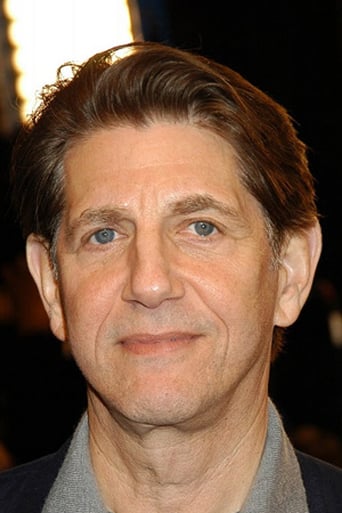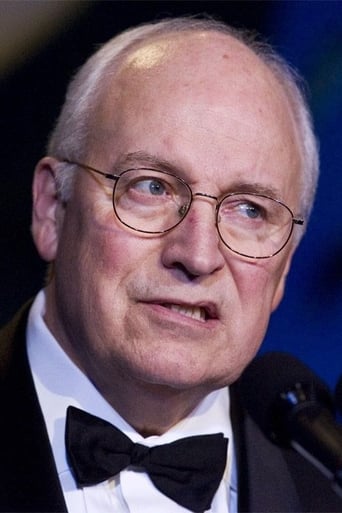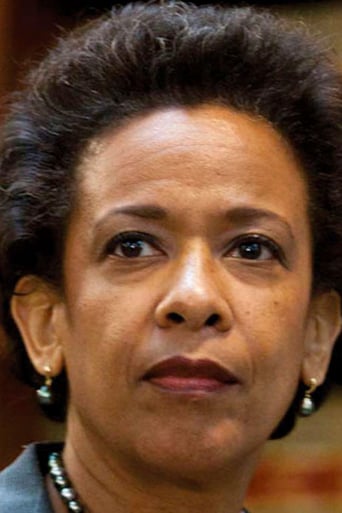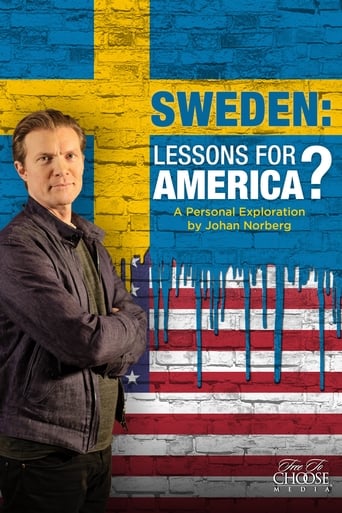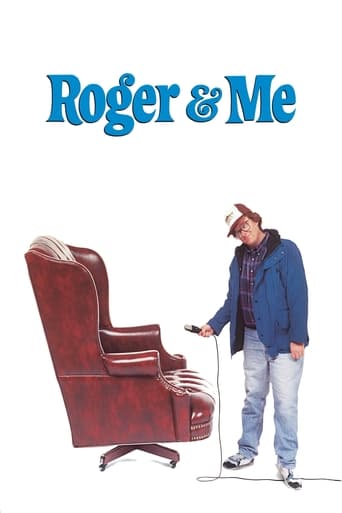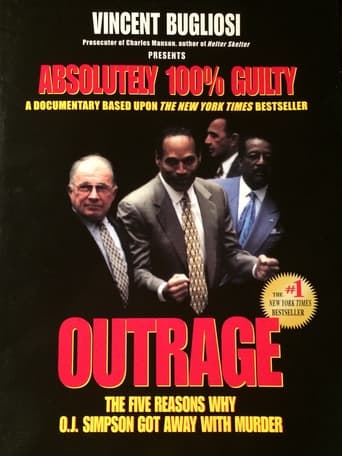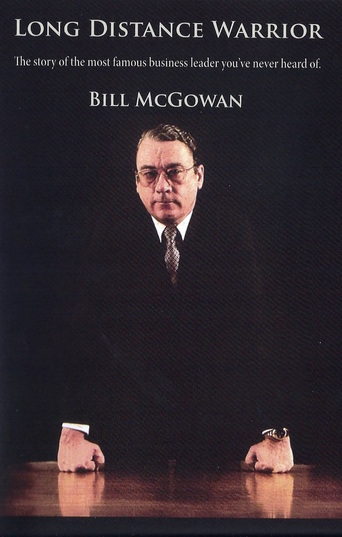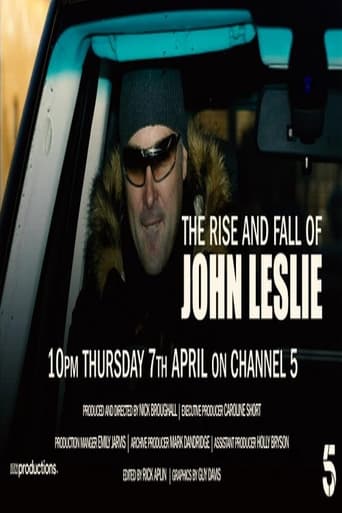Enron: The Smartest Guys in the Room (2005)
A documentary about the Enron corporation, its faulty and corrupt business practices, and how they led to its fall.
Watch Trailer
Free Trial Channels
Cast


Similar titles
Reviews
People are voting emotionally.
Just so...so bad
Exactly the movie you think it is, but not the movie you want it to be.
what a terribly boring film. I'm sorry but this is absolutely not deserving of best picture and will be forgotten quickly. Entertaining and engaging cinema? No. Nothing performances with flat faces and mistaking silence for subtlety.
'Enron.' To anyone born after 1995, it's a word likely to conjure blank stares - or 'wasn't he that Elf Agent Smith played in Lord of the Rings?' But, for those who lived through the largest corporate bankruptcy of the 20th century, Enron was far from a fantasy: it was a crime drama crossed with a disaster movie that broke the lives of its former employees more than Y2K ever would have. Enron was All the President's Men mashed up with Wall Street, directed by the Coen brothers, starring Tony Stark and Hannibal Lecter, as scripted by Tennessee Williams. There's even a third act cameo from Arnold Schwarzenegger (no, really!). You couldn't make this stuff up. Director Alex Gibney is wise enough to understand that doing justice to the Enron scandal requires two things: a) embracing the crazy head-on, and b) acknowledging that, for the vast majority of the world, energy trading, even the most unscrupulous kind, is unbelievably boring. After all, how else could a formerly inauspicious oil and gas company inflate itself into one of the most (faux-) successful companies of all time simply by, essentially, bluffing, and assuming the fine print would be too boring for anyone to check? Thankfully, Gibney is unafraid to peek under the dinosaur's skirt. Working off the novel of real-life intrepid journalist Bethany McLean, who lit the fuse of Enron's downfall (and also pops up here to issue words of cautionary wisdom), Gibney employs a bevy of talking heads, diagrams and simulations (cleverly crafted with the same wonky animation and contemptuous, snarky humour that Enron employed for their own PSAs) to succinctly boil down the obfuscating smoke-and-mirrors bullsh*t that allowed Enron to boast its way to a multi-billion dollar stock worth. His account - accessible as it is aggravating, titillating as it is tragic - is so plainly spelled out, that it's enough to make his entire audience feel like The Smartest Guys in the Room. The story of Enron may be sordidly funny in its lunacy (at least for those unaffected by the bankruptcy), but Gibney crafts it like a murder mystery. Opening with the eerie snarls of Tom Waits' 'What's He Building In There,' the film preludes the unfolding cascade of corruption, cocaine, trading, strippers, dirt bikes, blackouts, and Bush with the suicide of an Enron former senior executive to keep a poignantly sour taste in our mouths, reminding us it's all fun and games until someone loses their soul, reputation, and life. Framed by Peter Coyote's coyly dry narration and an ingeniously catchy soundtrack (anyone who juxtaposes Tom Waits with Dusty Springfield is all right in my books), Gibney's documentarian style is playful but unobtrusive, and, above all else, clear. He devotes consummate care to unpacking the duplicitous accounting practices Enron exploited for their own short-term commercial gain, making them comprehensible without being dumbed down: mark-to-market (essentially determining present value by hypothetical future profits), and offloading and burying debt in sleazy, fictional dummy companies (with monikers as tasteful as "Death Star" and "M. Yass"). It's an emotional rollercoaster throughout, tonally rollicking between a cringe, the darkest of guffaws, and a sadly befuddled head shake, but Gibney rides the wave with breezy aplomb. But, above all else, The Smartest Guys in the Room cottons on to Enron's fundamentally cinematic quality, and Gibney leans on the scandal's uncanny, stranger-than-fiction Hollywood tropes to make sense of the gas-bags who conned the stock market and the business world through brazen confidence and staggering, Icarian arrogance. Here (each introduced with their own Guardians of the Galaxy-esq musical motifs), we have Ken Lay - the political patriarch with the charm of the South, and the heart of a James Bond villain. Jeffrey Skilling - a Revenge of the Nerds turned Time Magazine darling cautionary tale, whose insidiously clever rule-bending lent him a swan song worthy of Macbeth. There's Andy Fastow, the Gordon Gekko accountant who spat in the face of the rules with Han Solo cockiness, and Lou Pai - the batsh*t executive who leapt off the sinking Enron ship to buy up most of Colorado with his pregnant stripper girlfriend - who... is too cartoonish to befit fictional counterpart. And, propping them up, an army of frat boy stock traders, whose boorish braying (opening mocking the "Grandma Millies" who lost power and lives as they whimsically whiplashed the deregulated California energy market), and coke-addled, bug-eyed grins, cheerfully admitting they'd literally stomp on each other's throats for a bonus. Such was their ballsiness that making a documentary of them is less a matter of Gibney corralling footage and mouthpieces, and more a matter of him stepping out of the way, and letting them string their own proverbial nooses with their own hubris. So outlandish were they, that playwright Lucy Prebble was able to lift an alarming amount of direct quotes for her West End production that play like satirical hyperbole (Skilling's "What's the difference between the state of California and the Titanic? At least when the Titanic went down, the lights were on," and Lay's 9/11 response - "Just as American is under attack from terrorists, so are we under attack at Enron" can duke it out for the most tasteless). The lot of them would be slammed as caricatures in a Hollywood screenplay, but, captured sans social performance in their primal d**chebaggery... suddenly Enron becomes more chilling horror movie than documentary. Years before Margot Robbie explained the real estate market in a bathtub and Leonardo DiCaprio blew a candle out of a prostitute's hindquarters came Enron: The Smartest Guys in the Room, still solidly holding its place as the third most entertaining film about the stock market. It's dazzlingly accessible and informative, and about as fun as an emotionally devastating movie about the fallout of a capitalism supernova could be. And, if there's even the slightest truth to Gibney's closing assertions that Enron paved the way for even more duplicitous corporate corruption, Enron's disturbing, mice-headed techno-dystopic 90s PR videos got one thing right: always, always, always ask "Why?" -9.5/10
The story of Enron, the energy company, and its rise and inglorious fall. We see its origins in the 1980s, how it was set up with energy deregulation in mind, and how it profited off the deregulation. Moreover, we see how it took accounting practices to the extremes, to the point that the senior executives were cooking the books. There is also coverage of the unethical practices of Enron' traders, particularly in the California electricity market. In the end it all comes crashing down, losing everyday, law-abiding employees their jobs, savings and pensions.Brilliant documentary. A great telling of how greed and hubris can lead to crime of the highest magnitude. Very well told. You can see how the illegalities just build. From legal mark-to-market accounting, the executives then start to overstate future profits. When these profits don't eventuate, rather than mark the profit down, they cover up the shortfall. Eventually the accumulated difference is so great that they feel they can't reverse it. Using company promo footage and presentations you can see how easy it must have been for investors and employees to fall for the lines.Not just an examination of corporate greed and lack of ethics but an examination of the baser instincts of mankind. So many cases of people choosing to do what was good for them, rather than what was right. The CFO, who was setting up all the dubious accounting schemes, was even skimming some of the company profit for himself! Thieves stealing from thieves.Highly engrossing. Told in very intriguing fashion by narrator Peter Coyote and written and directed by Alex Gibney (based on the book by Bethany McLean), while the subject is complex, it is reasonably understandable. Interesting for so many reasons too. The fact that they managed to hoodwink equity analysts for so long, the momentum effect - the more they got into it and the better they did, the less they could go back, the effects on investors and employees, the hubris on display. A truly great documentary, one that should be used in business schools and ethics classes.
A documentary about the Enron corporation, its faulty and corrupt business practices, and how they led to its fall.The film was released in 2005 and I watched it in 2015. Is it dated? Perhaps a bit. But it is also just as important as ever, really recapping some great history of finance, energy, and California politics. The names of "Ken Lay" and "Jeff Skilling" have not been forgotten.What would perhaps be interesting is a follow-up film about some of the key players. Arnold Schwarzenegger was a big winner. Ken Lay is, I believe, dead. I forget what happened to Skilling. And Gray Davis? Still tainted, and for something he had no control over.
I thought this was a well-performed documentary. I took a different view of it altogether. I believe that Enron is a small microcosm of the Conservative ideology. The greed, the flagrant disregard for innocent people and the manipulation of politics, economic policies to profiteer are all staple traits of Conservatives around the world. These people were not necessarily the smartest people in the room. They had no morals values, or considered ethics in any decisions made. Anyone can profit if you have no conscious.If Enron's practices and policies, corporate/ environmental deregulation (conservative values) were applied to global economics, we would all see the global economy crumble much the same, and the wealthy profit, while the working class pay the price and the poor become poorer.They showcased their new company motto, not as the world natural gas leader, but as the World Leading company. It appears they believed they were writing new economics and capitalism and proving to the world that their ideology was the right way.A great example of conservative policies/ ideologies negatively impacting the world and leaving a catastrophic mess for others to clean up and fix.






